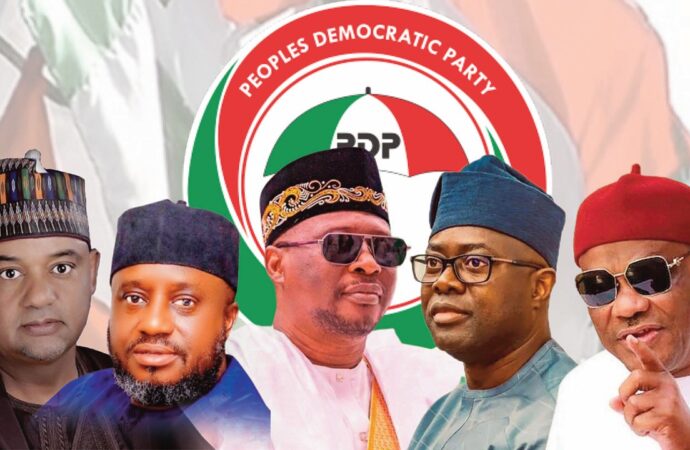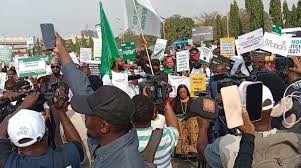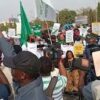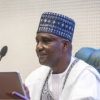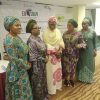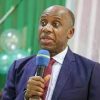Against all odds, the PDP held its convention in Ibadan, the Oyo State capital, at the weekend. With the outcome and election of new members of the National Working Committee, is the PDP swimming to sink or to sail? The next few weeks will determine its trajectory. Some believe the PDP is making progress after
Against all odds, the PDP held its convention in Ibadan, the Oyo State capital, at the weekend. With the outcome and election of new members of the National Working Committee, is the PDP swimming to sink or to sail? The next few weeks will determine its trajectory.
Some believe the PDP is making progress after its national convention in Ibadan signalled reforms ahead of the 2027 election, while others argue internal challenges, such as court cases and expulsions of members allied with Wike, will still hinder the party’s unity.
The convention resulted in the formation of the party’s new leadership, with Kabiru Tanimu Turaki, a former Minister under President Jonathan, elected as its national chairman and Ambassador Taofeek Arapaja as its national secretary, among other positions.
In addition to the election of new leadership, the convention was marked by the unexpected removal of the Minister of the Federal Capital Territory, Nyesom Wike, former Ekiti State Governor Ayo Fayose, and former national secretary Samuel Anyanwu, on grounds of “anti-party activities”.
The convention, which was held on November 15th and 16th, 2025, was attended by party dignitaries such as Governor Seyi Makinde (Oyo), Governor Ahmadu Fintiri (Adamawa), Governor Bala Mohammed (Bauchi), Governor Dauda Lawal (Zamfara), Governor Caleb Mutfwang (Plateau), and Umar Damagum, the outgoing PDP National Chairman.
Before the holding of the convention, there were conflicting court orders and the late withdrawal of some of the key stakeholders from attendance, an event which made it seem like the convention would be a futile mission.
But the convention held under the watchful eyes of party loyalists and observers, underscoring the PDP’s adherence to the rule of law and electoral integrity.
Wike And Others’ Expulsion
One of the convention’s outcomes was the dramatic expulsion of Nyesom Wike, Minister of the Federal Capital Territory, along with former Ekiti State Governor Ayodele Fayose and nine others from the party.
During the party’s elective national convention in Ibadan, Oyo State, Chief Bode George, a former National Vice Chairman of the PDP (South), moved to remove these two former governors from the party after delegates approved a motion accusing the politicians of alleged anti-party activities.
In addition to Wike and Fayose, three of Mr Wike’s allies who contested the convention in court, Samuel Anyanwu and Abdulrahman, were also expelled; They are Imo PDP Chairman Austine Nwachukwu, PDP South-South Zonal Secretary Turnah George, and Abia PDP Chairman Amah Nnanna.
While their expulsion was accepted by some key members of the party, two PDP governors, Ahmadu Fintiri of Adamawa and Caleb Mutfwang of Plateau State, have rejected the expulsions. Governor Fintiri had argued that Wike’s expulsion was not taken in the best interest of the party and, for that reason, he would not associate himself with it.
PDP and Internal Crises
The PDP’s stability has been uncertain since its candidate, Alhaji Atiku Abubakar, lost to the All Progressives Congress in the 2023 general elections, largely due to internal conflicts with Nyesome Wike and his supporters, who opposed and worked against their own party’s nominee.
Following the event of the 2023 election, the party has been facing an internal crisis. This has led to the existence of two different groups holding their loyalty to different tendencies in the party. A group leans towards the Governor of Oyo State, Seyi Makinde, including the likes of Bala Mohammed of Bauchi State, the immediate past acting National Chairman, Umar Damagum, and the National Vice Chairman (North Central), Abdulrahman Mohammed. Another belongs to Wike, Anyanwu and co.
Apart from the factionalisation in the party, the PDP has also been battling with some internal crises in the party leadership structure, particularly with the repeated legal battle of its immediate past National Secretary, Sam Anyanwu, with the party on the legitimacy of his position, a matter which further deepened the crisis within the party.
While the challenge in the party continued to deepen, particularly as it led to the defection of some of the prominent members of the party and some sitting governors, the PDP decided to clear its house and get its act together. To achieve its goal, the party announced the 15th and 16th of November as the dates for its National Convention.
Ibadan National Convention and its Legal Tussles
Meanwhile, PDP’s National Convention in Ibadan could not be described as a regular convention but as one with legal kerfuffle, factional infighting, and institutional uncertainty that nearly tore the party apart.
Following the announcement of the National Convention, a Federal High Court sitting in Abja ruled that the PDP must quash its proposed convention, based on the suit filed by three aggrieved members of the party, who insisted on the legality of the convention, maintaining that the party failed to comply with the party’s constitution, the Nigerian Constitution, and the Electoral Act.
Justice James Omotosho further ruled that the Independent National Electoral Commission (INEC) must not attend the convention, nor should it recognise any report or outcome of a PDP national convention that doesn’t follow due process.
In a similar ruling, a Federal High Court in Abuja, on Tuesday, issued an order stopping the PDP from going ahead with its planned National Convention based on the suit that was initiated by Sule Lamido, ex-Governor of Jigawa State, who claimed he was unlawfully denied a form to contest for PDP National Chairman.
Justice Peter Lifu of the High Court also barred the INEC from supervising, monitoring or recognising the outcome of the scheduled convention where the PDP intended to elect its national officers.
Counter Order
However, in a counter order, Justice A.L. Akintola of the Oyo State High Court issued the order last Monday that the national convention must proceed with the convention as planned, ordering the electoral commission to attend, monitor, and observe the convention.
Due to the back and forth in the legal battles, the reconciliation committee of the party suggested that the convention be postponed, but the party’s Board of Trustees (BoT) distanced itself from the committee, which was circulated in some sections of the media.
INEC’s Absence and Implication
While the party seemed to be moving its position forward, the reported absence of the Independent National Electoral Commission (INEC) at the PDP’s Ibadan National Convention has further raised significant legal and political questions for the party, especially as it prepares for the 2027 general elections.
According to Nigeria’s Electoral Act and established precedent, INEC must monitor political party conventions where national officers are elected or removed. Its absence at such a pivotal gathering calls into question the legitimacy of the convention’s outcomes.
Although political parties have the constitutional right to manage their internal affairs, the law requires INEC to observe conventions to ensure compliance with party constitutions and national statutes. The possible litigation battle in the future could also serve as an opening for an unwanted legal battle in the future.

